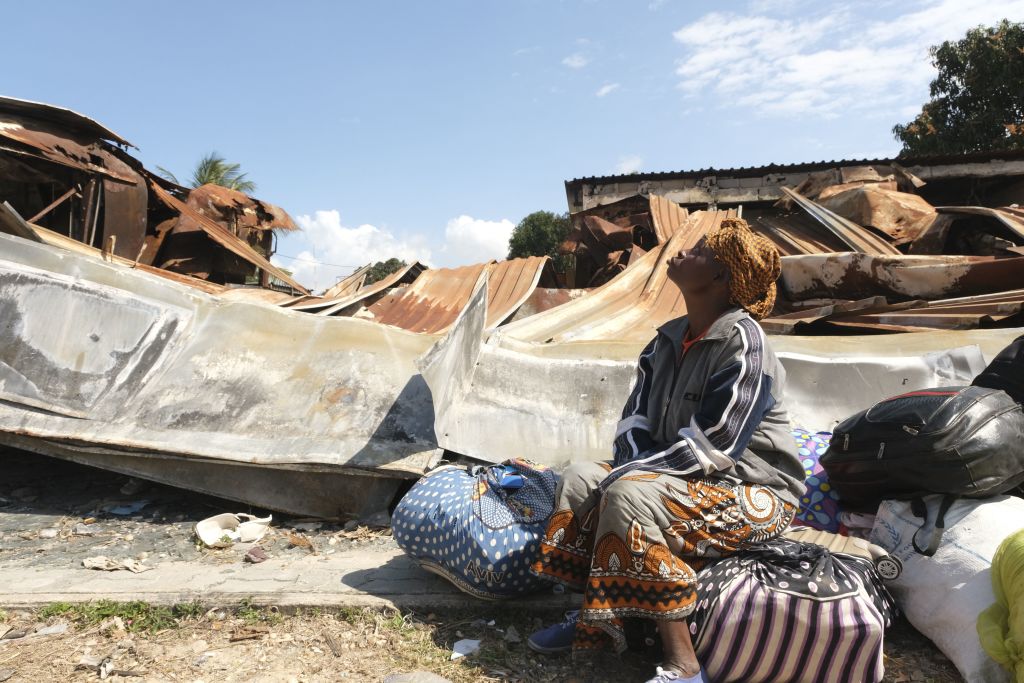ADF STAFF
After visiting Kyiv, Ukraine, in April, United Nations Secretary-General António Guterres took a delayed trip to the Sahel to focus international attention on the deteriorating security situation there.
His dilemma, and that of the entire African continent, was how to address crises amid an overwhelming international focus on Ukraine.
Numerous threats to peace and safety on the continent bubbled to the surface in 2022, while older perils festered.
Looking ahead to 2023, African security experts who spoke to ADF predicted the top security challenges for the coming year and offered thoughts on how to respond to them.
Rising extremism
The Sahel and Great Lakes regions and parts of Somalia and Mozambique were plagued by extremist violence in 2022. Violent extremist organizations (VEOs) are threatening to expand the conflict zones in 2023.
Jakkie Cilliers, the founder of the South Africa-based Institute for Security Studies (ISS), put it atop his list of threats, calling extremist violence “the major challenge” in Africa.
“The continued spread of violent political Islam could, in time, make large tracts of the continent ungovernable,” he told ADF.
Instability colors everyday life in the Sahel. Experts warn that VEOs linked to al-Qaida and others affiliated with the Islamic State group (IS) are determined to expand south to coastal states along the Gulf of Guinea.
In the eastern Democratic Republic of the Congo, more than 120 militant groups terrorize civilians regularly, hiding in the mountains that straddle the borders with Burundi, Rwanda and Uganda. The bloodiest among them is the IS-linked Allied Democratic Forces.
Governments in these areas must do more to help their diverse populations, say professor M.S. Maasutha Samuel Tshehla, dean of Stellenbosch University’s Faculty of Military Science, and his colleague, professor Francois Vreÿ.
“A decline of the demographic imperative in governments offers room for violent extremism that manifests as national and transnational terrorism and entry of actors to prop up unpopular regimes,” they told ADF.
“The danger here is the trend of violent extremism covering an area from the western Sahel south through the Great Lakes region down into Mozambique.”
Russia’s malign presence
Russia’s invasion of Ukraine threatens to drag on for the foreseeable future. The war not only exacerbated global inflation in 2022, but it had a direct and deadly impact on food Africa’s food security.
In a desperate attempt to bolster its ranks with new fighters, Russia also has resorted to recruiting members of African rebel groups to fight in Ukraine.
But Russia’s presence on the continent is most visible in the form of its clandestine operations by Wagner Group mercenaries and other proxies that terrorize civilians, sow disinformation and extract natural resources.
The Crisis Group cited Russia’s ongoing collaboration with Mali’s military junta in listing the U.N.’s mission in Mali as the organization’s top challenge in 2023.
“The mission’s charge to protect civilians faces fresh challenges in light of the Malian army’s anti-jihadist offensive, carried out in tandem with Russians allegedly belonging to the Wagner Group, a campaign that has generated reports of atrocities,” the think tank wrote in a 2023 outlook.
Fragile Ethiopian peace
A peace agreement signed in November 2022 offered Ethiopians hope after more than two years of civil war. But the ingredients remain in place for a destabilized Horn of Africa.
“Much of the country remains wracked by conflict,” the Economist magazine wrote in November 2022. “It could yet spread, even across Ethiopia’s borders into neighboring countries.”
Clashes over land and competition for political influence among the country’s three biggest ethnicities — Oromo, Amhara and Tigrayans — weaken and distract from government efforts to provide security and foster national unity. Neighboring Eritrea could continue to play a destabilizing role if its military occupies areas of Tigray as it has in recent years.
Disease outbreaks
COVID-19 remains a pandemic and a threat to stability in Africa.
In 2022, Word Health Organization Africa regional emergency director Dr. Abdou Salam Gueye warned that the pandemic, combined with a variety of health concerns, puts enormous pressure on national health care systems.
“Every year Africa registers at least 100 health emergencies, meaning the ongoing pandemic is an additional burden to our health systems,” he said in a bulletin.
Tshehla and Vreÿ also sounded alarms regarding Africa’s capacity to address health insecurity.
“African communities remain vulnerable to health threats such as tuberculosis, malaria and HIV/AIDS amidst the hype about COVID-19,” they said.
“Africa now knows that global pandemics are on the cards, and the impact is dangerous, while localized health threats such as Ebola must be contained.”
Political unrest
Another source of unrest in 2023 likely could come from political upheaval, which often is accompanied by violence.
Upcoming elections in Libya, Nigeria, South Sudan and Sudan could trigger conflict.
Coups, protests and socio-economic strains such as rising costs of living, inequality and poverty are expected to carry over into the new year.
“Africa’s young population is becoming more restless,” Cilliers said. “Protests and riots are also becoming a more regular feature across the continent.”
He emphasized that economic growth will be key to addressing the continent’s security challenges.
“None of [2023’s biggest threats] can be resolved without significant changes in Africa’s current growth prospects.”
Air Commodore George Kweku Arko-Dadzie, deputy commandant of the Kofi Annan International Peacekeeping Training Centre in Accra, Ghana, called youth unemployment a “looming threat.” He said it will be vital to offer opportunities to the continent’s young population to prevent them from turning to extremism.
“The issue of youth unemployment is a threat worth looking at as the devil may find work for the idle hands and this can be in the form of criminal activities and youth radicalization,” Arko-Dadzie said in an email to ADF.

